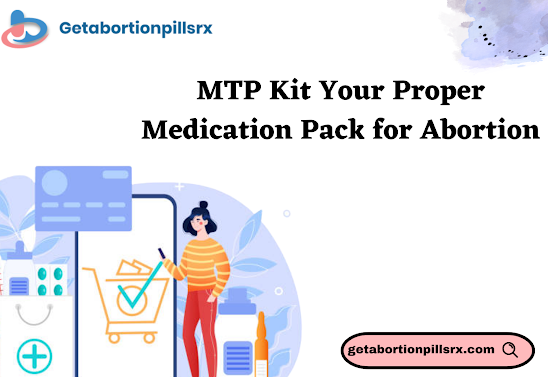Misconceptions Surrounding Medication Abortion And Abortion Pills
Medication abortions boast a high level of safety and effectiveness, yet there exists a prevalence of myths and misconceptions surrounding them. Here, we address Four common misconceptions about the abortion pill, presenting accurate information that everyone should be aware of.
Myth 1: Medication Abortions Are Not Incredibly Effective
Over the past two decades, medication abortion has demonstrated remarkable effectiveness and safety. A comprehensive assessment of abortion care by the National Academies of Sciences, Engineering, and Medicine reaffirmed that medication abortions successfully conclude early pregnancies while maintaining exceptionally low rates of serious complications. These pills exhibit their highest efficacy when administered within the first 8 weeks of pregnancy. However, medication abortion remains effective in more than 90 percent of cases for individuals between 9 to 10 weeks pregnant, and approximately 87 percent of the time for those up to 11 weeks.
In instances where effectiveness diminishes during the later weeks of the first trimester, an additional pill can be provided, ensuring completion of the abortion in nearly all cases. In rare circumstances, another option involves following up with an in-clinic surgical procedure to finalize the abortion process.
Myth 2: Terminating A Pregnancy Requires A Surgical
Procedure
When we contemplate abortion, the mental image often evoked is that of a "surgical" or procedural abortion, typically conducted within a sterile clinical environment.
A surgical abortion typically entails the dilation of the cervical opening (the cervix) and the utilization of suction to remove the fetus and associated pregnancy tissue. To facilitate the procedure, sedative medications are commonly administered to induce relaxation. Post-procedure, medications may be prescribed to induce uterine contractions, control bleeding, and minimize infection risks through antibiotics.
It's noteworthy that in 2020, medication abortions surpassed
surgical procedures for the first time, marking a substantial increase from
previous statistics, which indicated that medical abortions accounted for 39
percent in 2017. This shift toward greater reliance on medical abortions gained
momentum during the COVID-19 pandemic when surgical procedures faced
limitations and delays, prompting individuals to explore alternative options.
In fact, it may not be a requirement. To begin, the involvement of a doctor is not always obligatory. In numerous states, non-physician medical practitioners such as physician assistants and advanced practice nurses are authorized to prescribe these pills. However, it's worth noting that specific state regulations can vary, with some mandating that only licensed medical doctors administer medication abortion.
Myth 4: A Prescription Is Necessary To Obtain Abortion Pills
This circumstance no longer exists because of how things have changed over time. Mifepristone was previously governed by FDA rules that required its delivery in a clinical or hospital environment or under the close supervision of a licensed medical practitioner. This requirement was referred to as the "in-person dispensing requirement." As a result, it was unable to be mailed out or easily accessible at retail pharmacies.
But during the epidemic, the FDA changed this provision, removing the in-person requirement and adding the requirement that dispensing pharmacies be certified. In December 2021, these adjustments became final.
Although the FDA cautions against buying these medications online, stressing that doing so circumvents crucial protections for one's health, many healthcare professionals advise that buying abortion pills online from reliable sources is safe.
An increasing number of women are now able to control the
abortion procedure because of the advent of online pharmacies such as
Getabortionpillsrx that provide prescription abortion pills. This allows for more
self-management of the procedure since they may now obtain abortion pills
straight from certain websites without a doctor's prescription.
Read Our Related Blogs For More Information



Great post. Keep it up, Buy Cytotec online from our store to have safe ending of unplanned pregnancy.
ReplyDelete